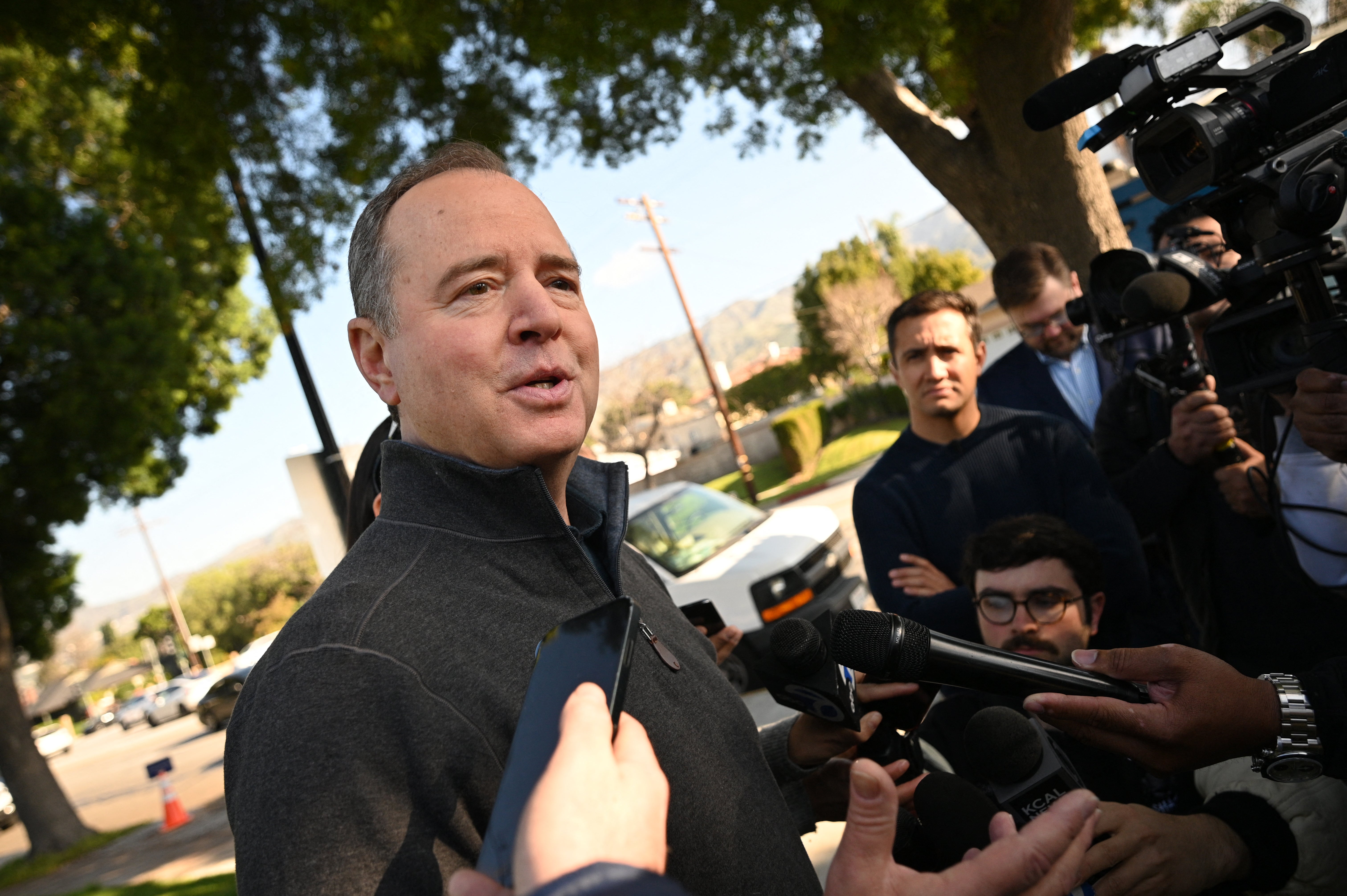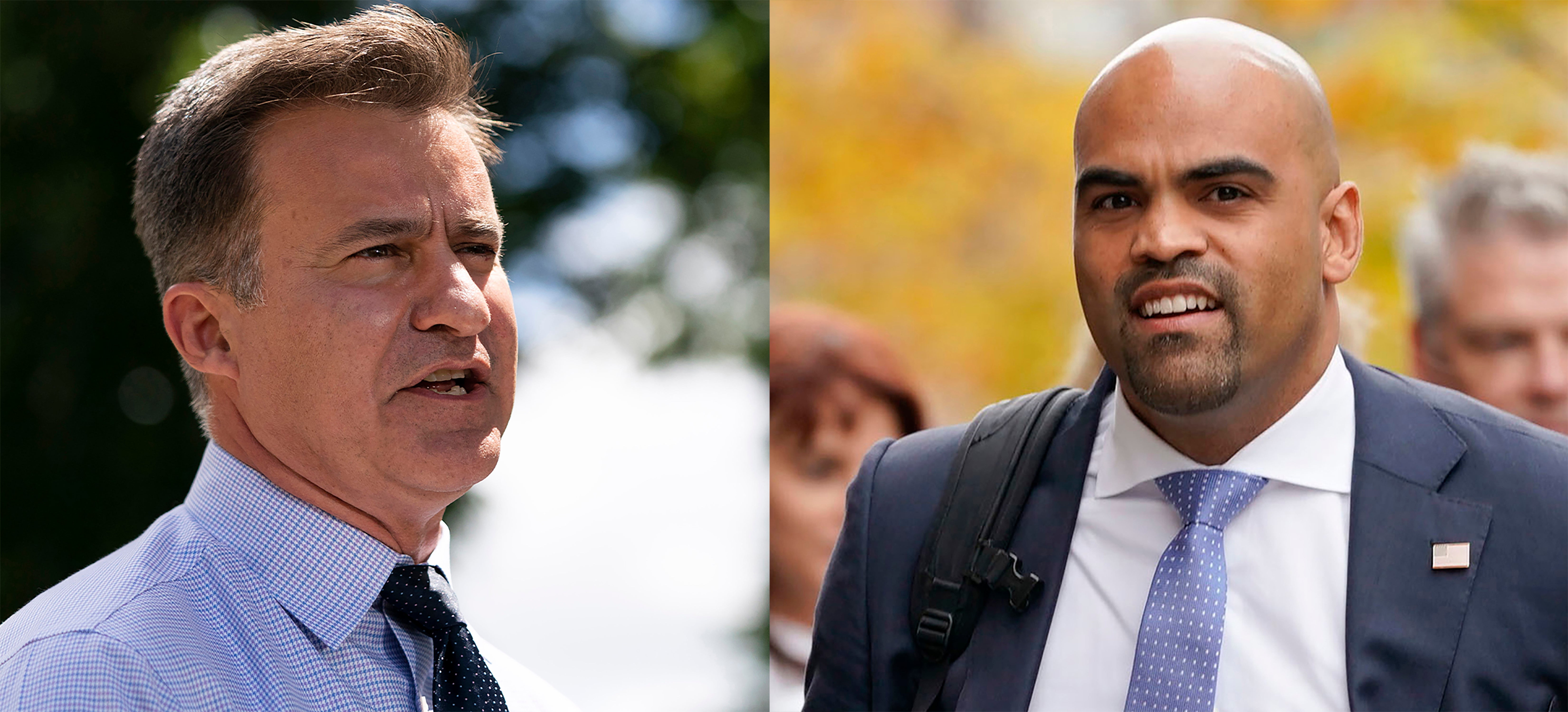Holocaust denier, ex-sports stars and a battle for Feinstein’s seat: Key results from Super Tuesday
While the presidential primaries were top of the agenda, a trove of down-ballot races played out on Super Tuesday
On Super Tuesday, voters in sixteen states and one territory cast their ballots in Republican and Democratic primaries.
All eyes were on the presidential primary races between Donald Trump and Nikki Haley, with the former president sweeping the states on Tuesday.
In an upset to Mr Trump, however, Ms Haley secured a win in Vermont, marking her second-ever primary victory this election season.
President Joe Biden also enjoyed a sweeping victory – aside from a small, surprise loss in the territory of American Samoa.
While the presidential primaries were top of the agenda, there was also a trove of down-ballot races playing out.
Here are some of the key results and takeaways from the night:
MAGA candidate wins GOP nomination for North Carolina governor
Mark Robinson, the current lieutenant governor of North Carolina, won the Republican primary nomination for the North Carolina gubernatorial race.
Mr Robinson has made several disparaging and untrue comments throughout his political career, including mocking school shooting survivors, calling LGBTQ+ people “filth”, claiming the US civil rights movement was a communist plot, and questioning whether the Holocaust happened.
He will face off against Josh Stein, a Democrat and current North Carolina attorney general, in November.
This year’s gubernatorial race will be particularly contentious as incumbent Roy Cooper, a Democrat, wraps up his final year in the term-limited position.
California’s Adam Schiff wins top place in primary race for Dianne Feinstein’s Senate seat
The race to replace late US Senator Dianne Feinstein came down to three Democratic representatives and two Republicans, one of them a former baseball star.
Under the state’s primary system, the two top vote-getters advance to the November general election, regardless of party.
Representative Adam Schiff secured first place in California’s Senate primary this Super Tuesday. Mr Schiff was competing against Democrats Katie Porter and Barbara Lee, both currently serving in Congress, and Republican Steve Garvey, a former major league baseball player. Businessman and attorney Eric Early also stood as a Republican.
Just before midnight ET, Mr Garvey was called as the second-place winner – advancing to the November election.
Throughout his Senate campaign, Mr Schiff used campaign ads to paint this race as a battle between him and Mr Garvey – someone he pitted as being too conservative for the state. Mr Garvey has quite shallow pockets compared to his other candidates and has yet to run a single TV advertisement, CNN reports.

Mr Schiff’s strategy is perceived to have intentionally increased Mr Garvey’s popularity — in a bid to benefit the Democrat by eliminating his main party rival Ms Porter from November’s ballot.
“The only thing that most voters knew about Steve Garvey on New Year’s Day was that he used to play for the Dodgers and the Padres,” Dan Schnur, a political communications professor, told CNN. “He hasn’t had the money to fill in those blanks, so Schiff and his allies are doing it for him.”
Alabama decides state supreme court justices after IVF ruling
Weeks after a state supreme court decision that threatens the future of in vitro fertilization in Alabama, voters on Super Tuesday decided the court’s next slate of justices in a closely watched Republican primary election.
Last month, Alabama’s Supreme Court defined frozen embryos as children, expanding the scope of so-called “personhood” embraced by Christian fundamentalists and anti-abortion groups who believe that life begins at conception – and underscoring the far-reaching impacts of Roe v Wade’s collapse.
The ruling drew widespread condemnation and alarm, with fertility clinics across the state fearing swift legal scrutiny and their forced closure while families were left in heartbreaking limbo.
Republican justice Sarah Stewart, who currently sits on the court and concurred with the controversial decision, is the projected winner of the Republican primary for the next chief justice. She will now face Democratic candidate Greg Griffin, a Montgomery County circuit judge.
Alabama’s 72-year-old outgoing chief justice Tom Parker – a proponent of Christian nationalist doctrine who cited the Bible in the court’s IVF ruling – is unable to seek another term; the state forbids judges older than 70 to be elected.
Ex-NFL player to take on Senator Ted Cruz in November
US Representative Colin Allred won the Democratic nomination for the Senate race to take on incumbent Republican Senator Ted Cruz in Texas come November.
Nine Democrats vied for the nomination to run against Mr Cruz for his long-held Senate seat this Super Tuesday.
The top Democratic candidates were Mr Allred and State Senator Roland Guttierez. Mr Allred won the primary with more than 60 per cent of the vote on Tuesday evening.

Mr Allred will face a tough race — Democrats are hoping to oust Mr Cruz this November after he retained his Senate seat by a slim margin in 2018 against Beto O’Rourke. However, no Democrat has won an election for statewide office in three decades.
Mr Allred was already in the spotlight recently after joining a handful of Democrats in backing a House GOP resolution criticising President Joe Biden’s handling of the US-Mexico border.
Arkansas Supreme Court races
Arkansas residents voted on an associate justice position and chief justice position for their state supreme court.
Voters re-elected Justice Courtney Hudson as associate justice, rejecting Circuit Judge Carlton Jones who would have been the first Black justice elected to the Arkansas Supreme Court.
The chief justice seat is also up for grabs with Justice Karen Baker, Justice Barbara Womack Webb, Justice Rhonda Wood and former state representative Jay Martin competing for the seat. Those results were yet to be called as of late Tuesday.
Nikki Haley wins second-ever presidential primary
Ms Haley won the Republican presidential primary in Vermont on Tuesday, marking her first state primary win, second primary win overall – and second victory over Mr Trump.
Prior to this, Ms Haley clinched victory in the primary in Washington DC on Sunday.
The former UN ambassador had vowed to stay in the presidential race at least through Super Tuesday, despite repeated defeats throughout the primary season.
Biden loses his first 2024 contest – in American Samoa
In every state primary so far, President Joe Biden has won the Democratic nomination for the 2024 election.
But challenger Jason Palmer beat the president in the American Samoa Democratic primary on Tuesday night. While the territory has eleven delegates to send to the Democratic National Convention, residents are not eligible to vote in the general election this November.

On Monday, Mr Palmer hosted a campaign event in American Samoa.
“Washington D.C. is long overdue for a president who will be an advocate for American Samoa,” he wrote on X. “The Meet & Greet in Malaeimi was a perfect way to learn more about what locals need the most.”
Trump wins Maine and Colorado one day after Supreme Court ruling
Mr Trump is projected to win the Republican nomination for president in Colorado and Maine – two states where he had been disqualified from the ballot under the 14th Amendment, which bars anyone who “engaged in insurrection” from public office.
His victories in those states came just one day after the US Supreme Court handed him a victory by ruling that he could not be kicked off the ballot.
Instead, the court found that only Congress, not individual states, have the authority to disqualify insurrectionists in federal elections, marking a reversal of the Colorado Supreme Court’s landmark decision that found Mr Trump ineligible for office for his actions on January 6 2021.

The Supreme Court’s decision was unanimous, but the ruling did not include any discussion on the central premise of the decisions in Maine and Colorado, which found that Mr Trump “engaged in insurrection” by fuelling a mob that stormed the US Capitol.
The high court’s three liberal justices sharply disagreed that only Congress can act, writing that the court’s conservative majority were attempting “to insulate all alleged insurrectionists from future challenges to their holding federal office.” The conservative majority effectively determined that an insurrectionist candidate could run for and be elected to office as long as they have the support of the controlling political party in Congress, the liberal justices argued.
Join our commenting forum
Join thought-provoking conversations, follow other Independent readers and see their replies
Comments
Bookmark popover
Removed from bookmarks